- 1
- 2
- 3
- 4
- 5
- 6
- 7
- 8
- 9
- 10
- 11
- 12
- 13
- 14
- 15
- 16
- 17
- 18
- 19
- 20
- 21
- 22
- 23
- 24
- 25
- 26
- 27
- 28
- 29
- 30
- 31
- 32
- 33
- 34
- 35
- 36
- 37
- 38
- 39
- 40
- 41
- 42
- 43
- 44
- 45
- 46
- 47
- 48
- 49
- 50
- 51
- 52
- 53
- 54
- 55
- 56
- 57
- 58
- 59
- 60
- 61
- 62
- 63
- 64
- 65
- 66
- 67
- 68
- 69
- 70
- 71
- 72
- 73
- 74
- 75
- 76
- 77
- 78
- 79
- 80
- 81
- 82
- 83
- 84
- 85
- 86
- 87
- 88
- 89
- 90
- 91
- 92
- 93
- 94
- 95
- 96
- 97
- 98
- 99
- 100
- 101
- 102
- 103
- 104
- 105
- 106
- 107
- 108
- 109
- 110
- 111
- 112
- 113
- 114
- 115
- 116
- 117
- 118
- 119
- 120
- 121
- 122
- 123
- 124
- 125
- 126
- 127
- 128
- 129
- 130
- 131
- 132
- 133
- 134
- 135
- 136
- 137
- 138
- 139
- 140
- 141
- 142
- 143
- 144
- 145
- 146
- 147
- 148
- 149
- 150
- 151
- 152
- 153
- 154
- 155
- 156
- 157
- 158
- 159
- 160
- 161
- 162
- 163
- 164
- 165
- 166
- 167
- 168
- 169
- 170
- 171
- 172
- 173
- 174
- 175
- 176
- 177
- 178
- 179
- 180
- 181
- 182
- 183
- 184
- 185
- 186
- 187
- 188
- 189
- 190
- 191
- 192
- 193
- 194
- 195
- 196
- 197
- 198
- 199
- 200
- 201
- 202
- 203
- 204
- 205
- 206
- 207
- 208
- 209
- 210
- 211
- 212
- 213
- 214
- 215
- 216
- 217
- 218
- 219
- 220
- 221
- 222
- 223
- 224
- 225
- 226
- 227
- 228
- 229
- 230
- 231
- 232
- 233
- 234
- 235
- 236
- 237
- 238
- 239
- 240
- 241
- 242
- 243
- 244
- 245
- 246
- 247
- 248
- 249
- 250
- 251
- 252
- 253
- 254
- 255
- 256
- 257
- 258
- 259
- 260
- 261
- 262
- 263
- 264
- 265
- 266
- 267
- 268
- 269
- 270
- 271
- 272
- 273
- 274
- 275
- 276
- 277
- 278
- 279
- 280
- 281
- 282
- 283
- 284
- 285
- 286
- 287
- 288
- 289
- 290
- 291
- 292
- 293
- 294
- 295
- 296
- 297
- 298
- 299
- 300
- 301
- 302
- 303
- 304
- 305
- 306
- 307
- 308
- 309
- 310
- 311
- 312
- 313
- 314
- 315
- 316
- 317
- 318
- 319
- 320
- 321
- 322
- 323
- 324
- 325
- 326
- 327
- 328
- 329
- 330
- 331
- 332
- 333
- 334
- 335
- 336
- 337
- 338
- 339
- 340
- 341
- 342
- 343
- 344
- 345
- 346
- 347
- 348
- 349
- 350
- 351
- 352
- 353
- 354
- 355
- 356
- 357
- 358
- 359
- 360
- 361
- 362
- 363
- 364
- 365
- 366
- 367
- 368
- 369
- 370
- 371
- 372
- 373
- 374
- 375
- 376
- 377
- 378
- 379
- 380
- 381
- 382
- 383
- 384
- 385
- 386
- 387
- 388
- 389
- 390
- 391
- 392
- 393
- 394
- 395
- 396
- 397
- 398
- 399
- 400
- 401
- 402
- 403
- 404
- 405
- 406
- 407
- 408
- 409
- 410
- 411
- 412
- 413
- 414
- 415
- 416
- 417
- 418
- 419
- 420
- 421
- 422
- 423
- 424
- 425
- 426
- 427
- 428
- 429
- 430
- 431
- 432
- 433
- 434
- 435
- 436
- 437
- 438
- 439
- 440
- 441
- 442
- 443
- 444
- 445
- 446
- 447
- 448
- 449
- 450
- 451
- 452
- 453
- 454
- 455
- 456
- 457
- 458
- 459
- 460
- 461
- 462
- 463
- 464
- 465
- 466
- 467
- 468
- 469
- 470
- 471
- 472
- 473
- 474
- 475
- 476
- 477
- 478
- 479
- 480
- 481
- 482
- 483
- 484
- 485
- 486
- 487
- 488
- 489
- 490
- 491
- 492
- 493
- 494
- 495
- 496
- 497
- 498
- 499
- 500
- 501
- 502
- 503
- 504
- 505
- 506
- 507
- 508
- 509
- 510
- 511
- 512
- 513
- 514
- 515
- 516
- 517
- 518
- 519
- 520
- 521
- 522
- 523
- 524
- 525
- 526
- 527
- 528
- 529
- 530
- 531
- 532
- 533
- 534
- 535
- 536
- 537
- 538
- 539
- 540
- 541
- 542
- 543
- 544
- 545
- 546
- 547
- 548
- 549
- 550
- 551
- 552
- 553
- 554
- 555
- 556
- 557
- 558
- 559
- 560
- 561
- 562
- 563
- 564
- 565
- 566
- 567
- 568
- 569
- 570
- 571
- 572
- 573
- 574
- 575
- 576
- 577
- 578
- 579
- 580
- 581
- 582
- 583
- 584
- 585
- 586
- 587
- 588
- 589
- 590
- 591
19 facts about technical SEO for beginners
You want to go deeply into technical SEO? In this article, we'll look at some basic things for those who are just starting to learn SEO.
Technical SEO is an amazing field for maneuvers, where every SEO specialist has to hone his skills. There are so many nuances here their solutions sometimes seems to resemble fascinating puzzles. All SEO specialists should possess this knowledge, as well as excellent skills in solving these problems, and the owner of the online store should understand these principles in order to correctly assess the actions of the same specialist. 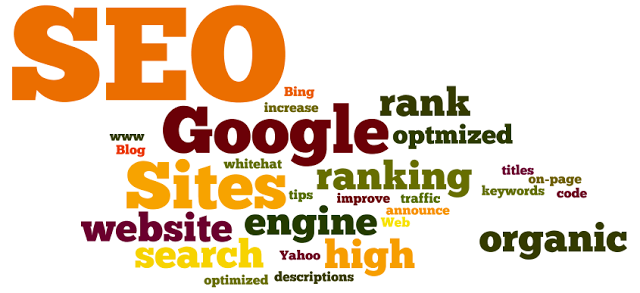
Let's get to the point.
1. Questions regarding the speed of loading the pages of the online store.
Until now, most people perceive the slow loading of pages as "evil" for users, but in fact, the "braking" of the site has far more serious consequences. The speed of page loading has long been a factor in ranking in the usual, desktop search engines, and recently in Google they said that they could soon and will use the download speed of mobile pages as a ranking factor in mobile search.
Of course, Google, as always guided by simple logic and the interests of users, you will agree, your target audience will be grateful to the search engine for the fact that the first in the results of its issuance it will provide Internet shops with faster time of loading pages.
Many of you have already used the Google PageSpeed Insights tool to get a speed analysis of your site and recommendations for improvement. For those who want to improve the performance of mobile versions of sites, Google has a new tool for determining the speed of loading pages, focused on mobile devices. This tool checks the page load time, tests your mobile site on a 3G connection, assesses the usability of mobile devices and much more.
2. The Robots.txt files are a sensitive case and should be located in the main site directory.

The file should be called lowercase letters (robots.txt) to be recognized by the search engine. In addition, the scanners only scan one place when they search for the robots.txt file, the main catalog of the site. If they do not find it there, most likely they will just continue scanning, assuming that there is no such file.
3. Scanners do not always get information from pages with "infinite" scrolling.
The trouble is that if the scanners-bots can not get the information, how will it get into the search ?!
When using infinite scrolling, make sure that in addition to one long scrolling, there is a broken series of pages. Not many web developers know and use this, so be sure to check your infinite scroll for the presence there of the structural separation for rel = "next" and rel = "prev" in the code.
4. For Google, it does not matter how you structure your site map (how the sitemap.xml file is generated).
Google likes XML files when building a sitemap (Sitemap), because they give it to bots an easy way to "read" all of your content and the faster the file is loaded, the better. But Google absolutely does not care what structure you create in this file.
John Muller from Google said this on Twitter "We do not care how you structure your Sitemap - they are read by our robots without any problems in any form."
5. The noarchive tag will not damage your ranking in Google.
This tag will not allow Google to show the cached version of the page in search results, but this will not adversely affect the overall ranking of this page.
6. Google usually scans your homepage first.
It's not a rule, but, usually, Google first finds the home page. An exception is the situation if your site has a large number of links to a certain page.
7. Google evaluates internal and external links in different ways.
A link to your content or website from a third-party site is weighed differently from the link from your own site.
John Muller from Google said on Twitter that Google "definitely" evaluates or has different calculations and formulas for internal and external references and signals. Question: "Are there any differences between the internal or external evaluation / juss / formula of calculation?" John replied simply - "yes"
Of course, most optimizers have already experienced this fact on their projects - Google has different signals for internal and external links. That is, if you receive a link from a third-party site, the weight of such a link will be more than if you refer to your own content from your own site. This is logical. And yes, internal links are really still strong for many reasons.
8. You can check the crooking budget allocated for your store in Google Search Console.
Crawling Budget is the number of pages that search engines can scan for a certain period of time. You can get an idea of this indicator in your console. From there you can try and increase it if necessary.
9. Create bans on indexing pages that do not carry value for your SEO and improve your crawling budget.
Pages that are not essential for your SEO efforts, pages that often include texts about privacy policies, late promotions, or terms of use of the site - all need to be closed in robots.txt.
A simple rule is if the page is not intended for ranking, and / or it does not have 100 percent unique quality content, block it.
10. What you need to know about the Sitemap files.
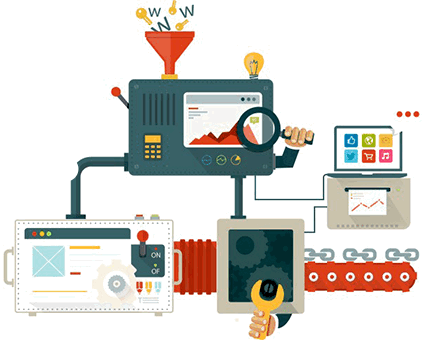
11. You can check how Google's mobile search engines browse pages on your site.
- XML files must be in UTF-8 encoding.
- They can not include session IDs from URLs.
- They must be less than 50,000 URLs and not more than 50 MB.
- It is highly recommended to create an index (table of contents) in a content file, instead of a million views in "sheets" format.
- You can use different Sitemaps to represent different types of media: video, images, news.
In the context of the fact that Google is moving to the priority of the mobile index and for the desktop version, it is important that your pages work well on mobile devices. Use the report from the Google Webmaster toolbar to find those pages on your site that may have issues with usability on mobile devices. You can also do a test for the site's friendliness to mobile devices.
12. All about mobile issuance of Google: "First mobile"!
Here, we'll tell you everything that we know about the changes in Google's mobile index.
Google rolls out and introduces a new mobile index. This means that Google in the formation of its mobile issuance will create and rank sites based on the quality and consistency of content for mobile devices, and it will also be considered for desktop users. You wonder how all this will work?! We have prepared the answers below.
Since this announcement, we have been monitoring what the Googlers tell us about the changes when they are asked by various industry experts. Below you will find a compilation of these questions and answers.
13. What changes in the index mobile-first?
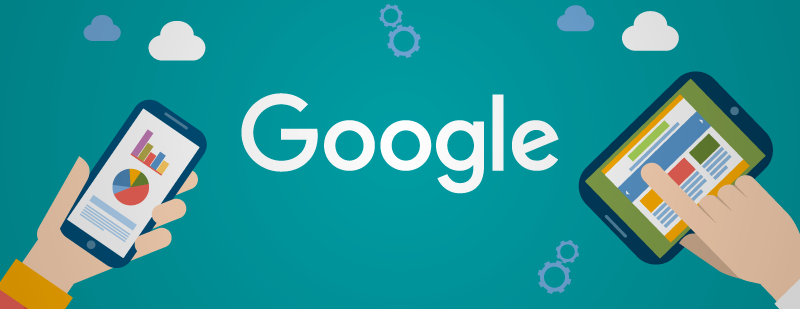
As more and more search queries come from mobile devices, Google has been concerned that its index and delivery results display pages relevant to such requests, but in addition these pages should primarily be comfortable and most importantly quickly downloaded and viewed on mobile devices (smartphones and tablets).
As the main index of the search engine, the indicator is "mobile versions of sites." The search engine index is a set of pages / documents detected by the search engine, primarily by scanning the Internet, making links to links. Previously, Google scanned the Internet from the perspective of the desktop computer's browser, and now Google is changing its approach to crawl the web from the browser of mobile devices.
14. What if you do not have a mobile site?
Google said that there is nothing to worry about. Of course, Google wants you to have a mobile site, but it will also scan the desktop version. Google said: "If you only have a desktop version of the site, we will continue to index and rank your site as well as before, even if we use a mobile-oriented custom agent to view your site."
If you have a mobile site, you need to take care and make sure that the content and links on the mobile site are exactly identical to the desktop version.
15. My mobile site has less content than the desktop version. Should I be nervous?
Potentially, yes. Google said that if it scans the mobile version of your site and there's less content on page A than on page A of your desktop version, Google will most likely just take in mind the mobile version with its less content.
That's why Google recommends using an adaptive design when creating a site, in which the content will be the same on every page, both for viewing from the desktop, and from mobile, adapted for the mobile version of the site.
16. When will this be fully realized?
Google said that they have already started testing this mobile index for some users. But it seems that until the full conclusion is still far away. Google will not give us the exact date, because they are still testing and weighing the possible consequences, and if everything goes well, we will soon see it in action. If everything is not so good, they can delay its launch.
Google really said that over time they will attract more and more of their users to the test version when they are more confident in their offspring.
17. How do I know if Google sees my online store correctly?
The best way to find out is to use the appropriate tool in the Google search console. Specify the mobile user agent and look at the preview after the rendering is completed. The fact that Google shows you the results obtained is likely what Google can see and index from your mobile site. If the content is missing, you should learn how to fix it, and run the tool again.
Signals for the ranking will come from your mobile site, not from the desktop version.
Google evaluated your mobile site based on many signals from your desktop version of the online store, as we have previously considered. And that's what it will change, Google will evaluate and rank your mobile and desktop versions of the sites based on the signals they receive from scanning your site from a mobile agent.
Thus, the speed of the page determines the rating of your mobile site and desktop version in Google.
Google will also likely review your header, H1, structured data and other tags and content created from your mobile site, and will use them on your desktop.
Does not this just turn the problem around in a different way, where Google evaluates the results of its desktop version based on how it sees your mobile site? Yes, but Google knows this, and the trend is that the mobile phone continues to grow, and more and more search engines will use the mobile phone to search the desktop.
18. Do Google have different indexes for mobile and desktop computers?
After all, Google plans to have only one index, based on mobile content, to serve lists for both mobile and desktop users. During this deployment period, there will be two: the desktop - the first and the mobile - the first. A smaller group of users will receive results from the mobile-first index. This is not something that someone can control. People probably do not know which index they use.
As Google grows confident in the first mobile index, in the end it will be the only index used.
Or, if the new index is not considered useful, Google can return to the index on the desktop. In the end, he called the mobile index the first "experiment".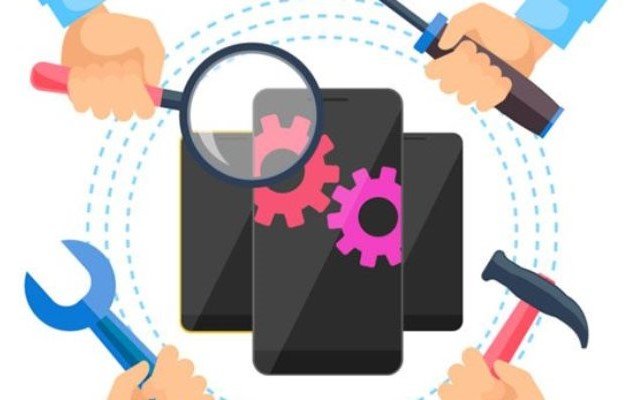
Google said in a blog post: "Our search index will continue to be the only index of websites and applications, our algorithms will eventually basically use the mobile version of the site content to rank pages from this site."
Paul Haar from Google said "Index of mobile pages for mobile users and index pages for the desktop version of desktop users will not happen."
19. Because of this they change links and ratings?
There is a concern that mobile content has fewer links than the desktop.
This raises concerns that it is similar to the above-mentioned problem regarding mobile content that has less content than content for desktop computers. Google search results are highly dependent on links and content. So, if both the links and the content are affected, will the rating affect?
Google said that they are still testing, so it is not 100 percent clear. Gary Illis said: "I do not want to say anything definite about the links yet. Too early, because things are very dynamic"
Canonical: Do you need to change them?
Google said that canons do not need to be changed, just keep your canonical tags as is, and follow their recommendations specified in their blog post.
Can I see the changes and the impact in the search results now?
Google said that you will not be able to see the changes and impact of the first deployment of the mobile device index. In fact, Google said that it hopes that after its full deployment there will be virtually no effect. Paul Haar said: "I would be very surprised if I found any consequences of indexing mobile devices at this stage."
Technically this is a global deployment, so it will not affect only certain regions. This should be a fairly detailed account of all questions and answers.

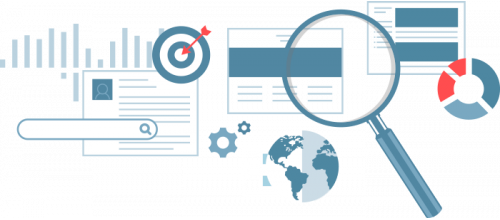
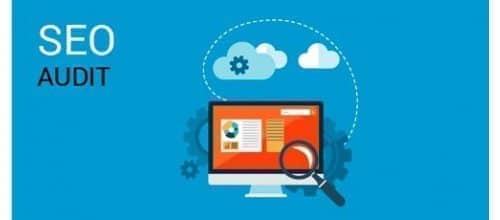

Comments